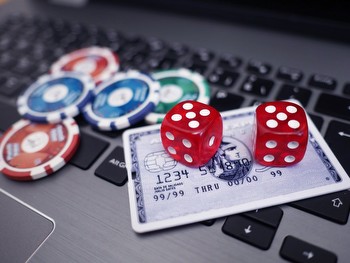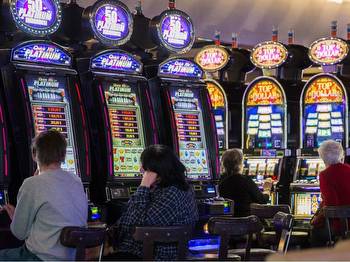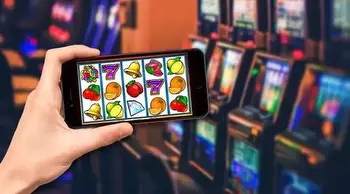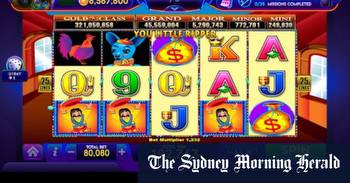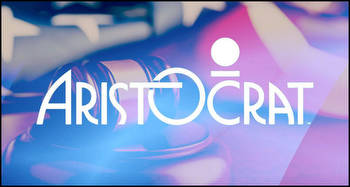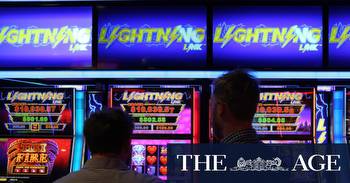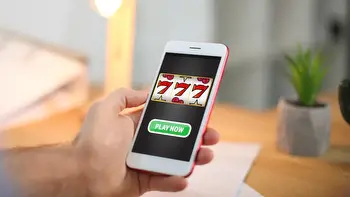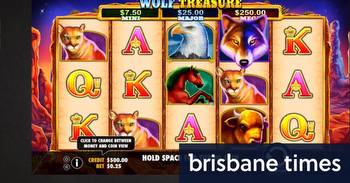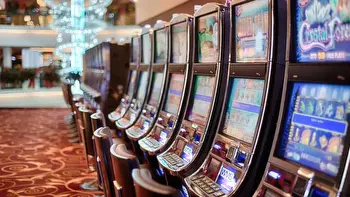Video games with simulated gambling to be given R18+ rating under new proposal to protect children and problem gamblers

The federal government will move to apply an R18+ rating to all video games that contain simulated gambling as part of a proposal targeted at restricting children's access to popular casino-style games.
It will also seek to change classification rules to require all games with paid loot boxes — where players can purchase a box with a randomised in-game item inside — to carry at least a "mature" M-rating.
That would affect some of the world's most popular games, including the hugely successful series of FIFA soccer games.
There is mounting concern over the easy access children have to games with gambling elements given the links between people who play simulated gambling games and real monetary gambling.
Some game developers have already phased out loot boxes, including in the popular game Fortnite.
Researchers have found that adolescents who play and spend money in simulated gambling games are more likely to have a gaming disorder than those who don't play.
Communications Minister Michelle Rowland says the proposals — which will require the agreement of states and territories to proceed — are designed to address concerns that these games can encourage players to migrate to gambling.
"There is growing community concern around the harms of simulated gambling," she says.
"A parent, for example, would expect that if their children had purchased and was playing a game, and that game contained some simulated gambling, that they have a right to know about that."
But the changes may also mean people under 18 will not be permitted to purchase games which contain simulated gambling in a less prominent way, including as a narrative element of a broader game.
"We want to be very clear and very binary in this regard, and the certainty that is provided by a proposal that says if there is simulated gambling in a game, then it is subject to a particular rating," Ms Rowland says.
"That is the clearest indication that we can give not only to consumers, but also to industry."
A multi-billion dollar industry dominated by gambling giants
The multi-billion dollar global "social casino" industry is dominated by major companies in the gambling industry.
Many of these games emulate the experience of a poker machine, even allowing players to purchase more virtual coins.
But they never pay out real money, meaning they're not treated as gambling services and are regulated as video games.
Nick Fischer, a gambling counsellor at Wesley Mission, calls it "the next era" of gambling.
He says an increasing number of people seeking help for gambling have played simulated gambling games. One of his clients, who had been gambling for about 25 years, had migrated to social casino games, he says.
"This particular person initially was only spending ... $50-100 ... and that's advanced to probably $200-300 a week," Mr Fischer says. "That amount of money is a huge sum for someone who's already financially in hardship."
Last year, a woman in Mackay was jailed for fraud after stealing nearly $1 million from her employer for social casino gameplay.
Associate Professor Alex Russell, a gambling researcher at Central Queensland University, says these games can be attractive for "the same reason that pokies are pretty dangerous forms of gambling".
"You can zone out, you can dissociate and not pay attention to what's happening around you," he says.
"If you watch a lot of people playing pokies, they sit there and just keep hitting the button, and they don't actually really care about wins."
Who plays social casinos?
Social casinos and pokies players are also demographically similar.
Professor Sally Gainsbury from the University of Sydney says social casino games are among the oldest skewing game genres.
"The average age of a social casino game player is over 45, particularly amongst slots. And bingo players, that demographic very much skews towards older people," she says.
"There is an overlap of people who play social casino games and engage in real money gambling, this is obviously driven by an interest in gambling themed games."
But that doesn't mean children aren't playing them too, with studies suggesting between 12 and 25 per cent of adolescents have done so.
That's disputed by the industry, which commissioned and that found less than 0.25 per cent of players are under 18, and just 0.008 per cent of players are both under 18 and spend money in social casinos.
Professor Gainsbury says her research shows young people are "certainly" playing these games. "We know that young people often change their age on social media platforms to gain access," she says.
"Because there's no actual age verification, young people are much more likely to list their ages higher than it actually is."
What's less clear is whether playing social casino games increases your likelihood of gambling in future, or vice versa.
Most academic research is based on surveys with relatively small sample sizes, but studies consistently suggest a link between social casino games and traditional gambling.
In 2014, Canadian researchers surveyed 99 social casino gamers twice, six months apart, and found that around a quarter of them reported migrating to online gambling.
They found that the odds of someone who'd bought credits in social casinos migrating to online gambling were about eight times higher than those who hadn't.
"It's not clear which one they're doing first, necessarily ... and it's also not clear that people who started with social casino games wouldn't have tried gambling anyway," Dr Russell says.
"But what is really clear is that these products appeal to the same people who take part in gambling anyway, and that's potentially a bit of a concern, because a lot of the people who take part in these gambling activities are often at risk of harm."
The International Social Games Association said there is no causal evidence that social casinos encourage people of any age into real money gambling.
"Social casino is a long established, researched and understood video game genre that is played for fun by millions of people worldwide," the association's chief executive Luc Delany said in a statement.
You won't win big money, but someone is
Aristocrat Leisure is one of the largest gaming machine manufacturers in the world, with machines operating in more than 100 countries.
Alongside its traditional business, the ASX-listed company has also quickly grown its digital revenue, of which simulated gambling makes up the biggest slice.
Aristocrat chief executive Trevor Croker boasted of the company's dominance in an online Q&A last year, saying "we've got strong market leading positions in social slots, where we're number one".
The company also owns a suite of role-playing and strategy games, with its digital business now making up nearly half its total revenue.
Aristocrat has also rapidly acquired app developers, starting with social casino operator Product Madness in 2012.
Five years later it spent US$990 million on another developer called Big Fish, and profits have been steadily increasing.
In 2020, Aristocrat's revenue across its entire business fell amid the pandemic storm, as traditional gaming operations were affected by global lockdowns.
But digital revenue continued to grow and, in 2022, the company brought in $2.6 billion from its digital businesses. About $1.4 billion of that was from social casino games.
Nick Fischer says the pandemic triggered a significant shift: "You saw a migration, an involuntary one, away from poker machines and traditional forms of gaming to the online space."
He says the ubiquity of the games has made them hard for people to avoid. "If you have a particular issue around gambling, you can at least avoid a venue, but it's very hard to avoid your phone and that's why it's become so disruptive for so many people."
Social casino developers plainly see synergies between simulated and real gambling activities.
Some games, like Aristocrat Leisure's Lightning Link, share branding with gaming machines found in real-world venues.
In gaming venues you can play Lightning Link branded games called "Tiki Fire", "Heart Throb", "King of The Nile", and "Moon Race", among others.
Games with the same names and styles are also available within the Lightning Link mobile game.
It is illegal for Aristocrat to advertise the gaming machines, but the company is widely advertising the mobile game which shares branding and visuals.
In response to the ABC's question about whether social casino advertising that shares branding with gaming machines could fall foul of the law, a spokesperson for Liquor & Gaming NSW said the regulator "is examining how these apps interact with the advertising provisions of section 43(6) of the Gaming Machines Act".
As far back as 2013, developers were spruiking opportunities for "the convergence of real money online gaming and social casino games".
"Another opportunity is the potential to bridge mobile/social gaming with bricks and mortar casinos — the idea that a player could win $50 online to spend in their favourite casino," Josh Yguado, then-president at Social Gaming Network, told an industry intelligence report.
The big difference
Gaming machines in most states and territories are legally required to pay out at least 85 per cent of what's put in, over the long term. In the ACT and South Australia that minimum payout rate is slightly higher, and it's usually even higher in casinos.
But developers are free to vary the win rate in social casino games.
"They pay out a lot more than real world gambling would be expected to," Professor Gainsbury says. "It's important consumers aren't misled in any way to think that their outcomes on a simulated game with no real world value are similar to what they should expect if they play a real money casino."
Her research has found some players think it is possible to be "good" at these games.
"Among our research participants, a substantial amount were saying they expected their skills were increasing, that they were getting good at these games, and they would have favourable outcomes if they went and played real money gambling games," she says.
Should government do more?
Wesley Mission chief executive Stu Cameron says the games should not be permitted in the first place.
"The gateway they provide into more harmful forms of gambling is such that they should be banned," he says.
"There's no doubt that the gaming and gambling industry win from these games, big multinationals win from these games.
"Who loses from these games is the general public, in terms of just the extraordinary amount of money that's being poured into these every single day."
Along with announcing its proposed changes, the government has also released a 2020 review of the Australian classification system commissioned by the former Coalition government.
It recommended that games which are based purely on simulated gambling should be given a minimum MA15+ rating, while games with less prominent simulated gambling elements need not attract such a high rating.
Ms Rowland says those recommendations are now three years old, and her decision to go even further than the review suggested is "in light of more current research".
"There is growing community concern around the harms of simulated gambling," she says. "A proportionate response is required, but also one that reflects the research, reflects community standards, and also reflects international best practice in this area."
But the government won't be treating mobile poker machine games as gambling services.
"The Australian regulatory framework is quite clear ... if it does not pay out money, it is considered a game, which is regulated under the national classification scheme," Ms Rowland says. "We intend to work within that existing regulatory framework to strengthen it."
Aristocrat declined to comment, and referred the ABC to the International Social Games Association, which said in a statement that it supports age-ratings for simulated gambling games.
"[The ISGA] values and supports the classification of games which work with parental controls to filter and limit access to content, monitor activity and control spending," said chief executive Luc Delaney.
Associate Professor Alex Russell says some of the harm minimisation measures that exist for gambling services, like spend limits and warning messages, could also be considered for these games.
Professor Gainsbury agrees we shouldn't shy away from the challenge. "It is a difficult area for regulators to look at, but it's important that we do take up this challenge," she says.
A parliamentary inquiry into online gambling is currently considering how simulated gambling games are regulated, among other issues. It is due to report back in coming months.








